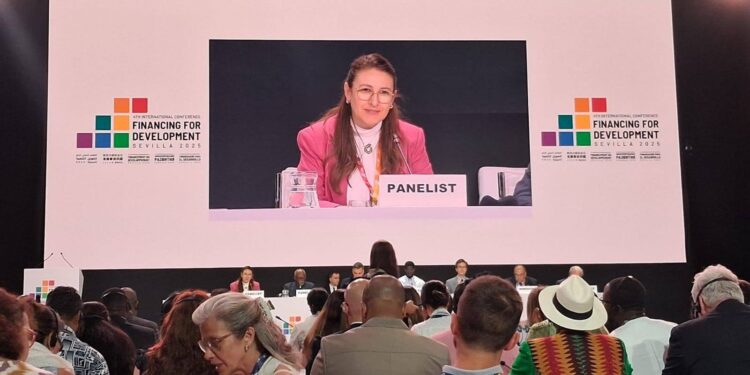On the occasion of the 4th United Nations Conference on Development Financing (FFD4), held in Seville from June 30 to July 3, Tunisia called for a profound change in debt management and international economic cooperation mechanisms.
Present in Seville alongside the heads of the Sarra government Zaafrani Zenzri, the Minister of Finance, Michket Slama Khaldi, brought the voice of Tunisia during the debates on the challenges of financing which are facing low or intermediate income.
At the end of the conference, she reaffirmed, in a declaration to the TAP agency, the ambition of Tunisia to strengthen its economic partnerships in a renewed multilateral framework, more equitable and more suitable for current realities.
The highlight of Tunisian participation took place on July 2, during a high -level round table devoted to sovereign debt and its sustainability. The Minister insisted on the need to rethink the world’s architecture of debt so that it becomes a real development lever, and no longer a weight that stifles growth.
Convert debt into projects, rather than charges
In his intervention, Michket Slama Khaldi pleaded for a transformation of traditional debt approaches, calling for favoring debt conversion mechanisms into development projects, exploring new forms of debt management and orienting financial flows to structuring projects.
Returning to the Tunisian case, the minister said that the country’s debt level was stabilized at around 80% of GDP, while insisting on the need for a qualitative approach to debt. For Tunisia, debt is sustainable if it allows you to generate wealth, create jobs and finance sustainable economic transitions. This position echoes the findings made by several managers present in Seville.
For more equitable international cooperation
On the sidelines of the conference, the Tunisian delegation reiterated its wish to strengthen international economic cooperation, in a context marked by the decline in development aid and the rise in budgetary pressures in many countries.
Tunisia has notably argued for better mobilization of public resources through innovative and fair instruments, in particular in the field of climate finance and the management of national budgets.
The FFD4 conference, which brought together heads of state, ministers, economists and representatives of international organizations, closed its work on July 3. A large consensus emerged on the urgency of reforming the global financial system, in favor of more inclusive, more resilient and more sustainable development.








